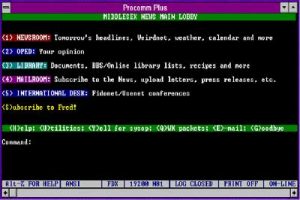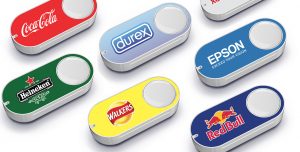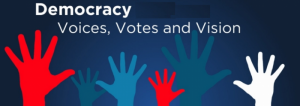Ever since I was a child I have always loved technology. The thought of a person being able to communicate with another person across the world, in the blink of an eye, blew my mind. I was introduced to technology in elementary school when our teacher brought us to the media center to show us a new technology called “The Internet”.
We gazed at a computer monitor with a black screen with green letters on it which kind of looked like the Apple 2’s we used to play Oregon Trail on during our time in the computer lab. The librarian began to explain that we were communicating through the computer with another person in Seattle. She went on to type “Hello from the Students of Mt. Bethel Elementary School”. Then they replied and saw their message on automatically show up on the screen. I was astonished by the concept. Once I saw this I knew this was my future.

I have now been in the web hosting industry for over 12+ Years and through my experience I have seen and had the opportunity to play a role in helping with the growth and advancement of the internet. I have had the privilege of seeing firsthand how connecting people through technology benefits society. I have also witnessed how technology can be used to violate civil rights for individuals. As I had mentioned in my previous post “Purpose Driven Innovation”, technology is simply a tool which is used to bring about the goals of its creator. Just like money, it is simply a tool. How it is used will determine if the results of its use is beneficial or harmful.
Technology is now advancing at such a fast rate that even Moore couldn’t predict. New technology is now being created which will open up many new opportunities for society. From the creation of newly discovered industries to new kinds of jobs which did not exist a year ago, technology is about to have a dramatic impact on social advancement and personal development. Local and global economies are now poised to make giant leaps in growth. Many people are not yet aware of some of the amazing possibilities and new opportunities that are now available from societies most recent innovations.
The use of data and storage now plays a major role in helping determine the direction for innovation. We have discovered that the more data that can be collected, the more we can identify, understand, resolve, and innovate new technologies to help society grow. Although collecting a lot of data has many benefits there is a caveat.
When most of society hear the word “Data” they may not fully understand what this really means. The same goes for the word “Cloud” and other technical jargon. Data is basically a collection of information saved in a structured format in a specific location. Data can be stored locally on your computer or on a company’s servers or network (Cloud).
There are many different types of verticals data can be categorized by. For example, your local computer can store data containing information on the websites you have visited, your saved emails, documents, and files you have downloaded from the internet. Just as your local computer stores data so does the web servers which run the internet.
Through the evolution of technology, we are now becoming aware of more and more different types of data which can now be collected and stored on web accessible servers. (i.e. Cloud). Servers which once only stored data such as websites, files, photos, and emails are now storing a growing amount of new kinds of data. Data such as bank account transactions, medical records, communication transcripts, streaming entertainment, and GPS logs are just a few examples.

Collecting this new kind of data can have either a positive and or negative effect on society depending on the people, companies, and or governments who are in control of this information and how they use it. There are many questions and cases for what kinds of data is beneficial to collect and which can be intrusive and violate civil rights. The answer to this question is not black or white and changes on a case-per-case basis. Therefore, I believe we need to evolve democracy to give the rights to citizens/users to decide what happens with their generated data.
In the case of medical records: If you can collect patient data about why an influx of people are sick then you will be able to prevent outbreaks and open opportunities to find new cures for illnesses. You would then be able to use that information to help heal more people and increase the longevity of a human being. This is how scientists will cure cancer and other terminal diseases in the very near future. President Barack Obama made a very smart and divine decision to convert medical records into a digital format. This one decision alone could have possibly changed society forever and saved our humanity from an unseen epidemic. We will find out soon.

In the case of businesses: When you log into a website and use said service the online business collects a trove of information about you and the data is then stored on private company servers outside your control. They collect this user data for many reasons. One reason is to better understand how the user is interacting with their product and to advance current products and innovate. Another reason is to identify ways of creating more revenue for the business. This is where some ethical questions come into play. Depending on the types of data in question and the motives for the business for how it would like to use this data, a user can be subject to violations to their civil rights without them realizing it.
In the past, this was not really an issue because the kinds of data which companies were collecting didn’t have any significant impact in the personal life of the user. With technology becoming more personal and the new kinds of data that is being generated become more accessible and shareable, some ethical questions are raised.
The internet is now connecting new kinds of devices to company servers without the need of a computer. This kind of innovation is called “The Internet of Things”. An example of this would be the new “Amazon Dash” buttons. A dash button is a simple device with a single button that when you press it will automatically order a product without the need of a computer. An example would be if you attached one of these buttons to a laundry machine and when pressed it to automatically order new laundry detergent. Though no one really cares if someone knows how often they purchase laundry detergent there may be other kinds of devices in the future which will contain more private information.

Eventually most of the devices in your home will be connected to the internet in some way, shape, or form. Much of the data generated from these new kinds of devices will be stored on web accessible servers in that company’s cloud. That service can then use this data how they wish. Depending on the ethics of the company this data can be sold to other companies to pitch and market other related services to it’s users or be given to unwanted sources without the user’s consent.
Whenever you sign up for any online service you traditionally must agree that you have read and agree to the service’s “terms of service” prior to being allowed to use said product or service. A major issue is that these agreements are currently communicated to the customer is deceiving. The agreements are usually very long, difficult to understand, and complicate the order process. About 99% of people never read these agreements and are forced to legally lie by making the user acknowledge that they have read and agree to the terms prior to using the service. Sometimes these agreements may entail clauses which state that the company has the right to share this data with other 3rd party companies. There is usually some financial gain for doing this. Agreements also provide protection for the company against any responsibility for any kind data loss.
I do not believe companies are intentionally trying to be deceitful or have some sort of mischievous motives for why they offer their services in this manner but are mainly not focusing on this issue because it does not affect their bottom line. People are given the explanation that if they do not like their terms then they do not have to use the product. But with all the many new kinds of devices which will be available and all the different types of service agreements which details different ways of handling user data, who are we to know which companies are doing what with what data. I believe more people need to focus on this problem in a proactive manner and work together to investigate solutions to better educate users on what is being done with their data.
In my opinion, there are several ways of resolving this issue. Companies can either better educate their users by changing how companies explain their terms of service or the service itself can be changed to give authority to its users to determine what is being done with their data.
To focus on the first option, there are several ways which can help better express a company’s terms of service. One idea is to standardize TOS agreements and use icons to symbolize sections of commonly used legal clauses. Think of this idea like the icons on the tags of your clothes which advise how to wash the material. Another idea is to make a summarized video showing an employee explaining the terms visually. Think of this idea like the video you watch which advises you of all the necessary safety precautions prior to a plane taking off.
I personally believe that the second option may have the opportunity to protect its users civil rights in an era of continuous agile innovation. There are several ways of giving authority and control over the use of data back to its users. One way is to evolve democracy to become digital and incorporate it into a company’s structure. If users of said product or service had ownership along with the legal rights to vote changes into the service, then they would have the control over what is being done with this data.
One of the awesome advantages of this concept is that by focusing on digitizing democracy through business models is that concepts can be tested, solutions can be shared, and issues that face our current form of democracy can be resolved without the waste of time and money. When we add a level of transparency and direct democracy to business models we also notice that customers are more satisfied with the product and are more likely to stay with the service for a longer period of time.
If users have the ability to vote in changes to different aspects of an organization including how the company stores data we will notice that some of the arguments about data collection can be resolved and build more trust in companies and governments. This is especially important now if you are aware of some the new technology becoming available and where the technology can go based on history.

Data is a very interesting topic and as more mature conversations can occur in a constructive manner, we will be able to prevent some of the bad side effects which may come about from newly created innovation. Also some advice: I would recommend anyone who is involved in the stock market to invest in data storage and cloud companies due to this fact. Also, it may be a smart idea to invent new kinds of school degrees’ which study data for the newly created job of a data scientist.














